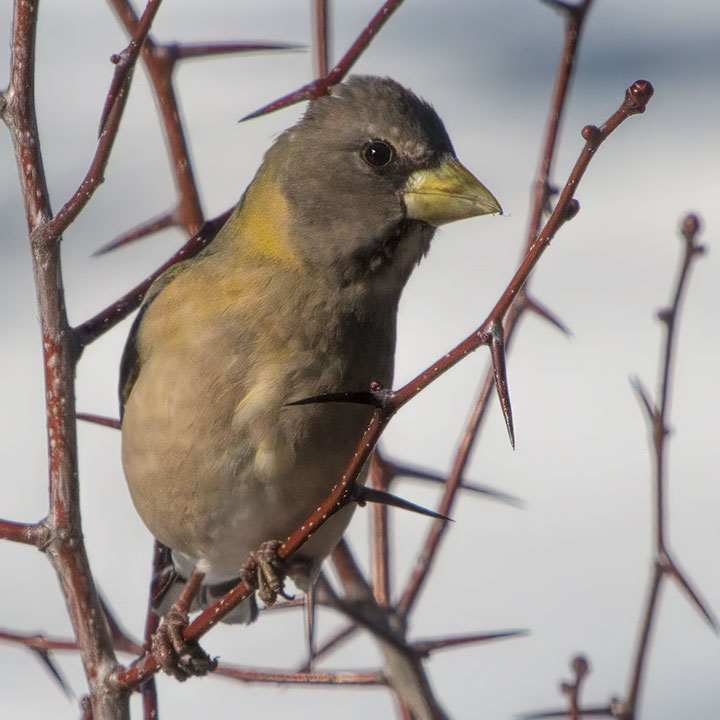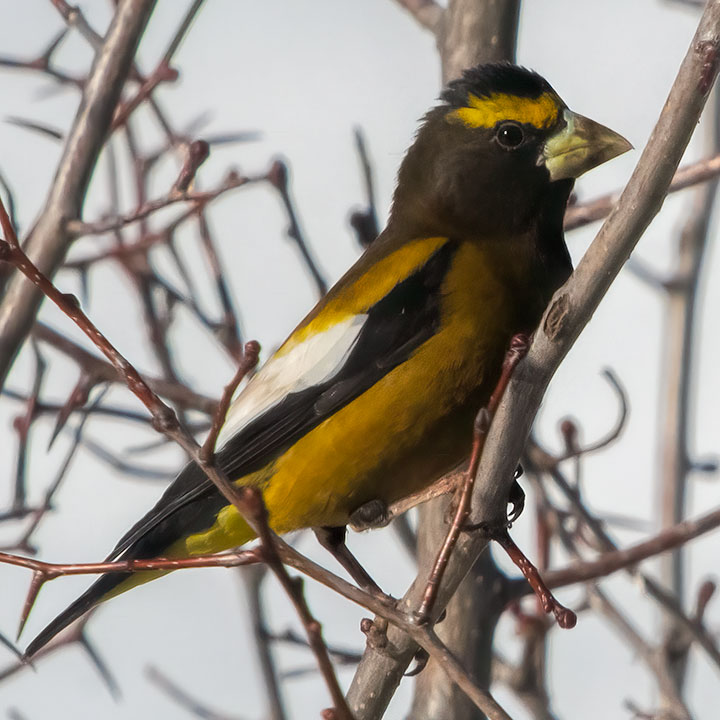The name given this bird by nineteenth-century settlers, Evening Grosbeak, comes from the mistaken belief that it only came out to sing after sundown. Much better is its name in French, le gros-bec errant, for it truly is the wandering grosbeak. Both languages agree on its prodigious beak.
It might be seen around here at any time of the year, but only occasionally, for it wanders widely in its search for food. Although seen by others over recent decades, I last saw one eight years ago.
Last weekend, I watched a small group of them in some black hawthorn bushes — a plant that in some seasons provides them with berries.
A female Evening Grosbeak has a subdued colouration of smoky grey with touches of yellow.

The male Evening Grosbeak is much more stridently coloured.


And can they ever make short shrift of a head of sunflower seeds! Lovely clear images I appreciate much, Alistair!
Lovely photos. I don’t get grosbeaks at my feeder so never see them. Thanks for these.
Hi Alistair
Interesting about “Le Gros-bec errant.” Errant in some parts of its range, no doubt, but a pretty steady customer up our way, at least in most years.